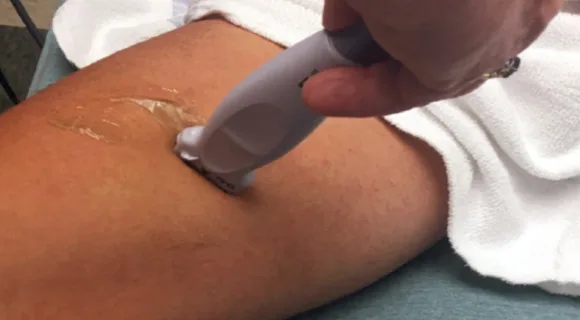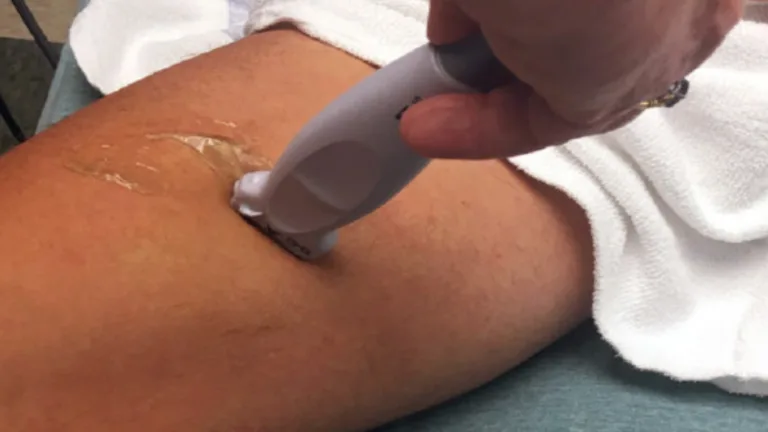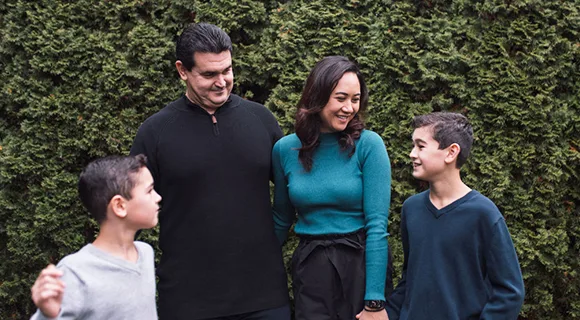More than 90 per cent of patients who come to Surrey Memorial Hospital for thoracic (chest) surgery will receive a minimally invasive “key hole” procedure and go home within a few days.
At Surrey, the keyhole surgery rates are among the best in the world – higher than some of the top cancer centres in the United States.
But it’s a much different story in Mongolia. Dr. Ganzorig Baatar, the head of the thoracic surgery program at the country’s National Cancer Centre recently visited Surrey for an intensive orientation to minimally invasive or key hole surgery.
In Mongolia, surgeons need access to more specialized training and new equipment before they can routinely provide this high-tech procedure. In the meantime, patients still undergo major surgery to remove lung cancers.
Baatar spent a month at Surrey Memorial Hospital observing the work of Fraser Health’s Thoracic Surgery team.
By learning from experts like Surrey’s Dr. Ahmad Ashrafi, he hopes to make minimally invasive thoracic surgery a reality for cancer patients who travel from across Mongolia for surgery at the National Cancer Centre.
The original connection between Mongolia and Surrey happened through sheer luck, after Baatar struck up a conversation with Dr. Hugh Parsons, a Surrey eye surgeon who was visiting Mongolia. This chance encounter ultimately led to the opportunity to work with Ashrafi.
“Canada is a leader in thoracic surgery,” Ashrafi explains. “I have always been interested in international surgery and working abroad is a great opportunity to not only share the knowledge and skills that we possess, but it also makes me realize how fortunate we are to provide the best care for residents of Fraser Valley with all of the state-of-the-art technologies at our hospital.”
Ashrafi hopes to establish a training program to enable more international thoracic surgeons to come to Surrey and learn from the team.
During Ashrafi’s first visit to Mongolia in 2016, he worked with Baatar to remove part of a patient’s lung during the country’s first video-assisted thoracic surgery (VATS), as well as performing several other procedures. The team from Canada also included an anesthesiologist and specialized nurses, and they brought some of the necessary instruments along with them.
Surrey Hospital Foundation President & CEO Jane Adams explains that Surrey Hospital Foundation has committed to support some of this work, providing funding to help specialists from countries like Mongolia, where it’s much more difficult to bring new procedures and technology into practice, spend a short period of time in Surrey learning the most up-to-date surgical techniques.
“The Foundation received donations to help with this and future exchange programs. It is gratifying that our supporters in the community want to share the unique expertise that our doctors have with the rest of the world – a great example of acting locally and thinking globally,” she says.
While in Surrey recently, Baatar was impressed to see that even patients who needed complex thoracic surgery were able to receive minimally invasive procedures, recover quickly and spend only a few days in hospital.
“It was incredible to see a man who had received a (lung) lobectomy up walking by himself the next day,” he says.
In Mongolia, the same patient would have the same operation with a large incision and spend at least a week in hospital.
Later this year, Baatar will have the opportunity to welcome Ashrafi and his team to Mongolia for another opportunity to work together.
Working with experienced surgeons and learning advanced techniques through training at international centres means that Baatar will be able to teach these new skills to his colleagues. But he still faces the challenge of purchasing the equipment and technology needed for the high-tech VATS technique. Currently, all the surgeons at the National Cancer Centre share only one set of minimally invasive instruments.
After his experience here, Baatar is even more motivated to make minimally invasive thoracic surgery possible for his own patients, and he hopes to have the opportunity to come back to Surrey in the future.
“During my visit I got a lot of good knowledge of performing VATS, and I also met many kind hospitable people,” he says. “British Columbia is a beautiful place with sea and mountains, a paradise to live in.”


